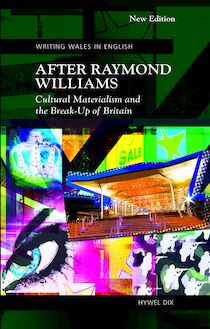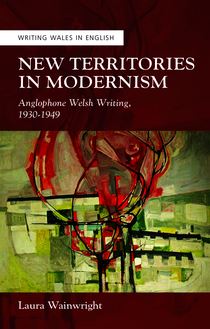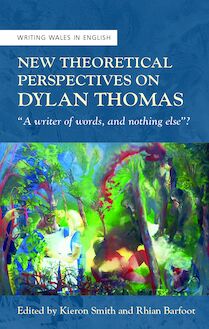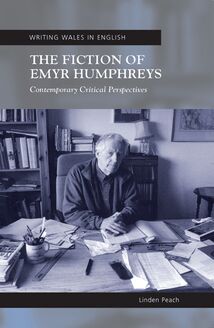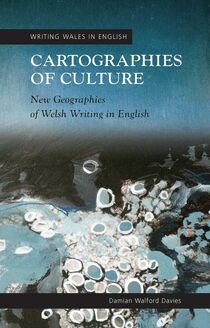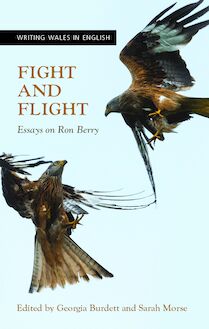-
 Univers
Univers
-
 Ebooks
Ebooks
-
 Livres audio
Livres audio
-
 Presse
Presse
-
 Podcasts
Podcasts
-
 BD
BD
-
 Documents
Documents
-
- Cours
- Révisions
- Ressources pédagogiques
- Sciences de l’éducation
- Manuels scolaires
- Langues
- Travaux de classe
- Annales de BEP
- Etudes supérieures
- Maternelle et primaire
- Fiches de lecture
- Orientation scolaire
- Méthodologie
- Corrigés de devoir
- Annales d’examens et concours
- Annales du bac
- Annales du brevet
- Rapports de stage
La lecture à portée de main
Vous pourrez modifier la taille du texte de cet ouvrage
Découvre YouScribe en t'inscrivant gratuitement
Je m'inscrisDécouvre YouScribe en t'inscrivant gratuitement
Je m'inscrisEn savoir plus
Vous pourrez modifier la taille du texte de cet ouvrage
En savoir plus

Description
Sujets
Informations
| Publié par | University of Wales Press |
| Date de parution | 01 juillet 2009 |
| Nombre de lectures | 0 |
| EAN13 | 9781783163694 |
| Langue | English |
Informations légales : prix de location à la page 0,0824€. Cette information est donnée uniquement à titre indicatif conformément à la législation en vigueur.
Extrait
Emyr Humphreys
Writing Wales in English
CREW series of Critical and Scholarly Studies General Editor: Professor M. Wynn Thomas (CREW, Swansea University )
This CREW series is dedicated to Emyr Humphreys, a major figure in the literary culture of modern Wales, a founding patron of the Centre for Research into the English Literature and Language of Wales , and, along with Gillian Clarke and Seamus Heaney, one of CREW ’s Honorary Associates.
Other titles in the series
Stephen Knight, A Hundred Years of Fiction (978-0-7083-1846-1)
Barbara Prys-Williams, Twentieth-Century Autobiography (978-0-7083-1891-1)
Kirsti Bohata, Postcolonialism Revisited (978-0-7083-1892-8)
Linden Peach, Contemporary Irish and Welsh Women’s Fiction (978-0-7083-1998-7)
Chris Wiggington, Modernism from the Margins (978-0-7083-1927-7)
Sarah Prescott, Eighteenth-Century Writing from Wales (978-0-7083-2053-2)
Hywel Dix, After Raymond Williams: Cultural Materialism and the Break-Up of Britain (978-0-7083-2153-9)
Matthew Jarvis, Welsh Environments in Contemporary Poetry (978-0-7083-2152-2)
Harri Roberts, Embodying Identity: Representations of the Body in Welsh Literature (978-0-7083-2169-0)
Emyr Humphreys A Postcolonial Novelist?
Writing Wales in English
DIANE GREEN
© Diane Green, 2009
All rights reserved. No part of this book may be reproduced in any material form (including photocopying or storing it in any medium by electronic means and whether or not transiently or incidentally to some other use of this publication) without the written permission of the copyright owner except in accordance with the provisions of the Copyright, Designs and Patents Act 1988 or under the terms of a licence issued by the Copyright Licensing Agency Ltd, Saffron House, 6–10 Kirby Street, London, EC1N 8TS. Applications for the copyright owner’s written permission to reproduce any part of this publication should be addressed to The University of Wales Press, 10 Columbus Walk, Brigantine Place, Cardiff, CF10 4UP. www.uwp.co.uk
British Library Cataloguing-in-Publication Data A catalogue record for this book is available from the British Library.
ISBN 978-0-7083-2217-8 e-ISBN 978-1-7831-6369-4
The right of Diane Green to be identified as author of this work has been asserted by her in accordance with sections 77, 78 and 79 of the Copyright, Designs and Patents Act 1988.
The publishers wish to acknowledge the financial support of the Higher Education Funding Council for Wales in the publication of this book.
The publisher has no responsibility for the persistence or accuracy of URLs for any external or third-party internet websites referred to in this book, and does not guarantee that any content on such websites is, or will remain, accurate or appropriate.
Cover image: Branwen by Christopher Williams © MairRabagliatti. Reproduced by permission of City and County of Swansea: Glynn Vivian Art Gallery Collection.
C ONTENTS
General Editor’s Preface
1 Postcolonialism and Wales: the Effects of Cultural Imperialism
2 ‘A serious Welsh novelist’: Redressing the Balance
3 The Emergence of Humphreys as a Postcolonial Writer
4 The Consolidation of Strategies in Outside the House of Baal
5 Strategies of Resistance: the Use of Indigenous Myth
6 Strategies of Resistance: the Use of Indigenous History in ‘The Land of the Living’ Sequence
7 Strategies of Resistance: the Use of History in the Independent Novels of the 1980s and 1990s
8 Monstering and Disabling: Paradigms and Tropes of Dispossession
9 Postscript: Speaking Welsh in English – a Postcolonial Purpose
Notes
A Selected Bibliography of Emyr Humphreys’s Fiction and Essays
A Selected Bibliography of Writing on Emyr Humphreys’s Works
Bibliography
G ENERAL E DITOR’S P REFACE
The aim of this series is to produce a body of scholarly and critical work that reflects the richness and variety of the English-language literature of modern Wales. Drawing upon the expertise both of established specialists and of younger scholars, it will seek to take advantage of the concepts, models and discourses current in the best contemporary studies to promote a better understanding of the literature’s significance, viewed not only as an expression of Welsh culture but also as an instance of modern literatures in English world-wide. In addition, it will seek to make available the scholarly materials (such as bibliographies) necessary for this kind of advanced, informed study.
M. Wynn Thomas CREW (Centre for Research into the English Literature of Wales) Swansea University
1
Postcolonialism and Wales: the Effects of Cultural Imperialism
National consciousness, which is not nationalism , is the only thing that will give us an international dimension. 1
A discussion of Emyr Humphreys as a postcolonial author involves a number of issues alongside an examination of his work, including whether postcolonial theories are in fact relevant in the study of Welsh literature. However, it is clear from international events in the early years of the twenty-first century that concepts of nation and national identity merit careful examination and are still a motivating force engendering significant repercussions. Throughout the twentieth century a variety of commentators from myriad backgrounds took part in the public discussion of what exactly Welsh identity comprises, alongside literary discussions concerning Welsh literature and its relationship with texts written in English. This text will concentrate on the fiction of Emyr Humphreys, who has lived (for the most part in Wales) throughout most of the twentieth century and who is, in the twenty-first century, still writing. The major events of the twentieth century have necessarily impinged upon this novelist’s life and work: even the First World War, occurring immediately before his birth in 1919, dramatically affected the world into which he was born, most personally in its debilitating effect upon his father. Simultaneously, Wales’s particular history has influenced the writer and his work. The importance to Humphreys of the Penyberth bombing campaign (1936), for example, cannot be overemphasized.
Ned Thomas, writing in 2003, argues that the construction of Welsh writing in English as a distinctively ‘national’ body of writing is in its comparatively early stages: ‘where others have a map of their literature which they wish to modify, we are just beginning to construct a map’. 2 However, he takes issue with Saunders Lewis’s view that it is ‘a community, possessing its own common traditions and its own literature, [that] we generally call a nation’, 3 arguing for the plurality of a nation’s possible literatures at the present time:
Today, in the critical climate of the English-speaking world, this seems a rather hermetically sealed account of literature. Are we not all on some cultural border, in some historical interstice, exiles, marginals, members of diasporas, living at some interface, and more so in Wales perhaps than in many places? 4
It is not the intention here to discuss the intricacies and complexities of the term postcolonial , but to summarize the problems involved with bringing postcoloniality into a discussion of the fiction of Emyr Humphreys, a Welshman writing in English, during the twentieth century and to the present. The sense of writing from a colonized position has been evident in literature for at least a century but established itself first amongst Welsh writers in English in the 1960s, alongside greater Welsh nationalist political activity and an increasing interest in the language question. 5 It is only relatively recently, however, that critical writing on Welsh literature in English has adopted postcolonial stances. Both Nations and Relations (2000) and the 2001–2 edition of the yearbook Welsh Writing in English contain essays discussing a variety of Welsh writers in postcolonial terms. Indeed, Stephen Knight, discussing Gwyn Thomas, calls him ‘a colonized person, as the Welsh still are’, 6 admitting that he has only used the term post-colonial for the critics, ‘those now free Indians and West Indians who subtly guide our thoughts on these matters’, whilst in another essay M. Wynn Thomas describes ‘Wales’s subaltern relationship to Britain’. 7
More recently it has become commonplace to view Welsh literature in English through the postcolonial lens. 8 Stephen Knight in A Hundred Years of Fiction, for example, asserts from the outset of his study that ‘it sets out to read Welsh fiction in English to understand how the literature of a colony, in the language of the colonizer, has been affected by its situation …’ (xiii), 9 while Ruth McElroy discusses the multiple and varied positions regarding colonization held by different nations under the umbrella term ‘British Empire’: ‘Whilst neither India nor Wales were technically defined as colonies, both were subject to English convictions of cultural superiority as epitomized in the evolving imperial rhetoric and political practice of the nineteenth century.’ 10 Her ensuing detailed discussion of official attitudes to education and the use of the English language in Wales makes a clear argument for regarding Wales as colonized, at least in these areas. Alternatively, a recent television programme, Wales and Slavery: the Untold Story (2007), attempted to define Wales’s role as part of the machine of empire, finding the Welsh nation in the nineteenth century indubitably implicated in, contributing to and materially benefiting from both the British war machine that enabled the forging of empire and the pernicious slave trade which accompanied it.
What is emerging from these explorations is the possibility that postcolonial theories may need broadening in order to contain those nations that, like Wales, are in ambiguous positions in relation to colonial powers. One problem is that much of postcolonial theory is concentrated upon the Third World, and treating a comparatively prospe
-
 Univers
Univers
-
 Ebooks
Ebooks
-
 Livres audio
Livres audio
-
 Presse
Presse
-
 Podcasts
Podcasts
-
 BD
BD
-
 Documents
Documents
-
Jeunesse
-
Littérature
-
Ressources professionnelles
-
Santé et bien-être
-
Savoirs
-
Education
-
Loisirs et hobbies
-
Art, musique et cinéma
-
Actualité et débat de société
-
Jeunesse
-
Littérature
-
Ressources professionnelles
-
Santé et bien-être
-
Savoirs
-
Education
-
Loisirs et hobbies
-
Art, musique et cinéma
-
Actualité et débat de société
-
Actualités
-
Lifestyle
-
Presse jeunesse
-
Presse professionnelle
-
Pratique
-
Presse sportive
-
Presse internationale
-
Culture & Médias
-
Action et Aventures
-
Science-fiction et Fantasy
-
Société
-
Jeunesse
-
Littérature
-
Ressources professionnelles
-
Santé et bien-être
-
Savoirs
-
Education
-
Loisirs et hobbies
-
Art, musique et cinéma
-
Actualité et débat de société
- Cours
- Révisions
- Ressources pédagogiques
- Sciences de l’éducation
- Manuels scolaires
- Langues
- Travaux de classe
- Annales de BEP
- Etudes supérieures
- Maternelle et primaire
- Fiches de lecture
- Orientation scolaire
- Méthodologie
- Corrigés de devoir
- Annales d’examens et concours
- Annales du bac
- Annales du brevet
- Rapports de stage
